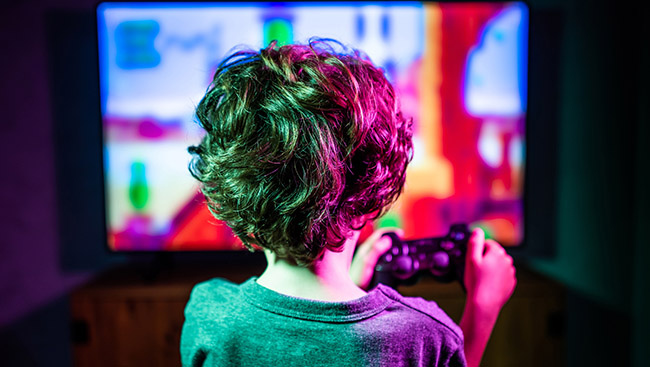Playing video games is certainly a form of belonging, especially when it comes to multiplayer games. In addition, the games often offer alternate realities, where players can escape into a new world.
While many industries faced a hit as a result of the pandemic, one particular segment of the market flourished: video games. It was reported that in March 2020, just around the onset stay-at-home orders, video game sales went up by 34% while video game hardware saw a growth of 63%. With approximately three billion video game users across the globe, the industry is here to stay.
For parents, the topic of video games is bound to come up sooner and later. Once a child’s friends begin to play, the power of the network makes it likely for others to join in. Playing video games is certainly a form of belonging, especially when it comes to multiplayer games. In addition, the games often offer alternate realities, where players can escape into a new world.
Ask yourself:
• Do I feel bad when I can’t play?
• Am I having a hard time stopping or reducing my play time?
• Do I think about video games most of the day?
• Am I not enjoying activities I otherwise used to like, outside of gaming?
• Do I play to feel better when I have unfavorable feelings?
• Am I lying to my close friends and family about the time I spend playing?
• Are my work, relationships or studies being impacted because of video games?
To explore why video games are so compelling, research company Immersyve conducted studies and collected years of data. It was deduced that video games target three important psychological needs:
Competency: Humans like to feel that they are good at something. Accomplishing goals and reaching objectives, with built-in reward systems, allows players to feel a sense of success.
Autonomy: Gamers can try as many times as they like and make decisions to their liking. This degree of independence gives one a sense of control.
Relatedness: Aside from mass online games that connect multiple global players, gamers can also feel connected to the fictional characters and situations in a game.

Given that video games tap into essential human needs, they are bound to have positive impacts. Enhanced cognitive ability, improved hand eye coordination, relaxation, and a better overall mood are all potential benefits for gamers. On the other side of the coin, however, there are also hazardous impacts to avoid.
Foremost, the bottom line is that video games make people feel good to the extent that they can have addictive qualities. The dopamine released, because of fulfilling the three psychological needs, brings you back to the game again and again. The desire to play more can begin to take a majority of your time. This may lead to a decrease in motivation for work and study as extensive time and energy is dedicated to gaming. Related issues such as insomnia and obesity may also be linked. Moreover, a gamer may go down the path of escapism, suppressing or running away from problems in real life using video games. As such, poor mental health, social disconnection, and relationship problems may arise.
Be it a partner or child, it can be especially hard to understand and address problems related to excessive gaming. Those who play video games may feel that those who do not play cannot truly understand how much fun it is to play. Conversely, the other party may feel unheard and dismissed as they may not be getting the attention they would like in a relationship.
In such a situation, the onus falls on both sides to work towards repairing the problem. If you feel a loved one is playing too much, approach the situation collaboratively rather than from an attack-oriented mindset. If you are constantly hearing from others that you are playing too much, a quick self check-in can help. Rather than being irritated, assess whether the warning signs exist for a possible video game addiction.
Even if you see the warning signs, a video game addiction is not necessarily the diagnosis. It might just be an indication that there is a need to cut back or to start setting boundaries on your relationship with video games. Even for parents, banning video games is not the solution for bad grades; there are far too many other factors to consider. Of course, parents should be in the know in regard to which types of games their children play (extreme violence and sexual content may not be suitable for younger children). That said, it is all about moderation and balance.
For both adults and children, setting healthy limits can go a long way. This includes setting time limits for play time and adhering to those limits, no matter what the situation. This can be self-enforced, or the help of another person or even technology can be taken for reminders. Further, consider only allowing yourself to play once a certain set of tasks has been accomplished for the day; this could be homework or house chores. As a result, it is less likely for play time to interfere with your to-do list. Most of all, remember to build in fun activities and social situations outside of just gaming. Exercise and self-care are important to include in your routine. To keep yourself or your children accountable, you may also choose to set consequences if you go off track.
Undoubtedly, video games offer a lucrative source of entertainment. As is the case with anything, it only begins to have adverse impacts when taken to the extreme. The negative impacts of video gaming can be easily mitigated through consistent monitoring and taking others’ observations of your gaming habits seriously. Simply put, control that controller, but don’t let it control you!






